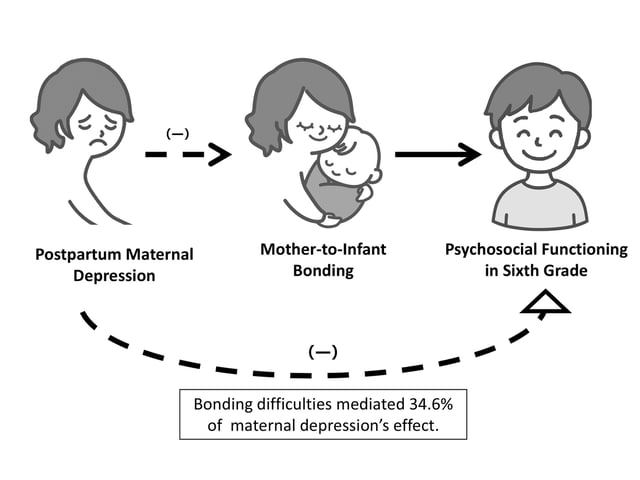Overview
- A Shinshu University study found 17.1% of mothers experienced postpartum depressive symptoms, mirroring national rates in Japan.
- Secure mother-to-infant bonding was shown to mediate 34.6% of the long-term effects of postpartum depression on child emotional and behavioral outcomes.
- The study analyzed 245 mother-child pairs from Okaya, Japan, using validated tools to assess maternal depression, bonding quality, and child psychosocial difficulties.
- Male children were found to be more vulnerable, exhibiting greater difficulties in conduct and attention-related domains compared to females.
- Researchers advocate for bonding-focused interventions and enhanced postpartum mental health screening to mitigate long-term developmental risks.

